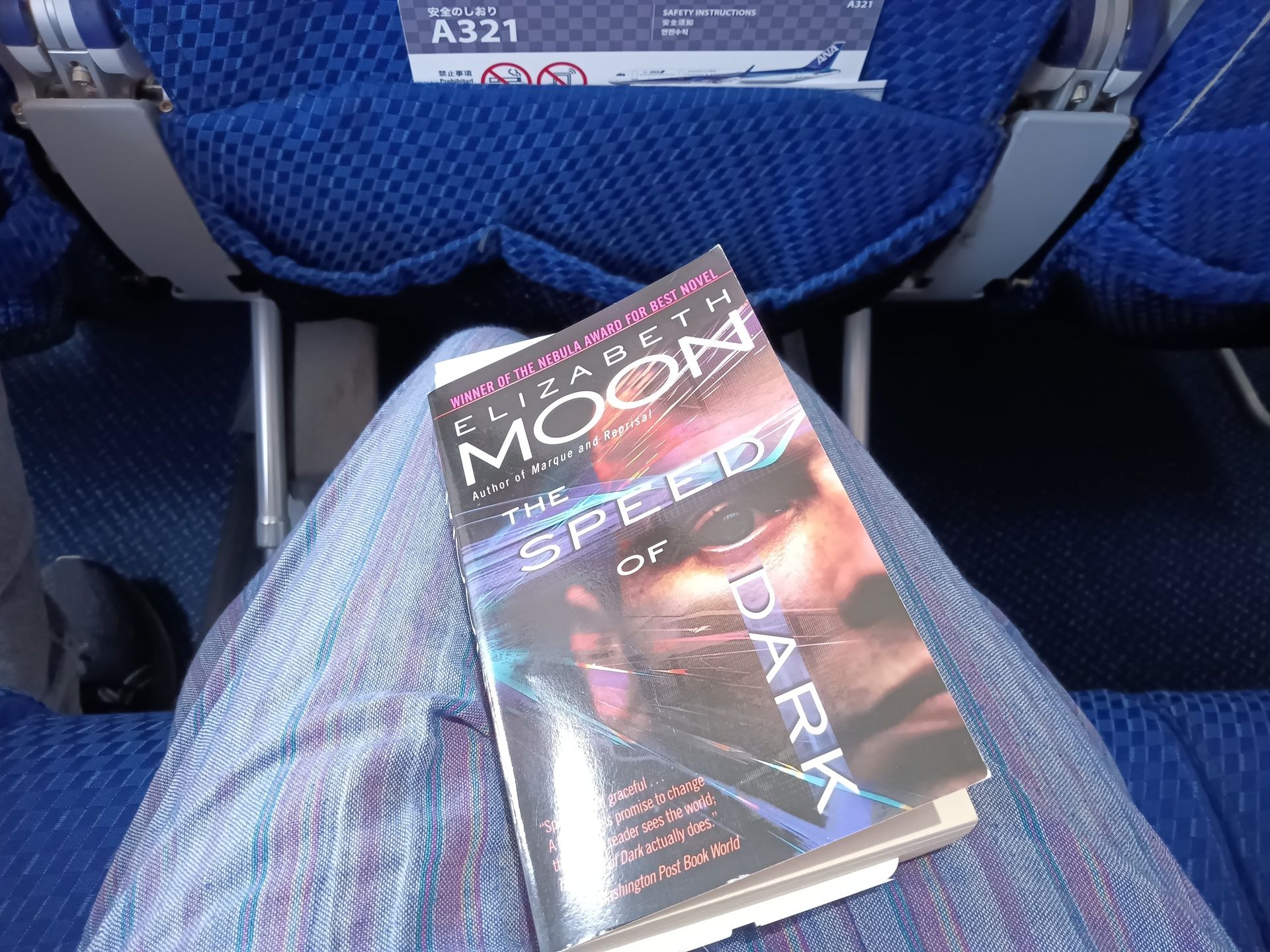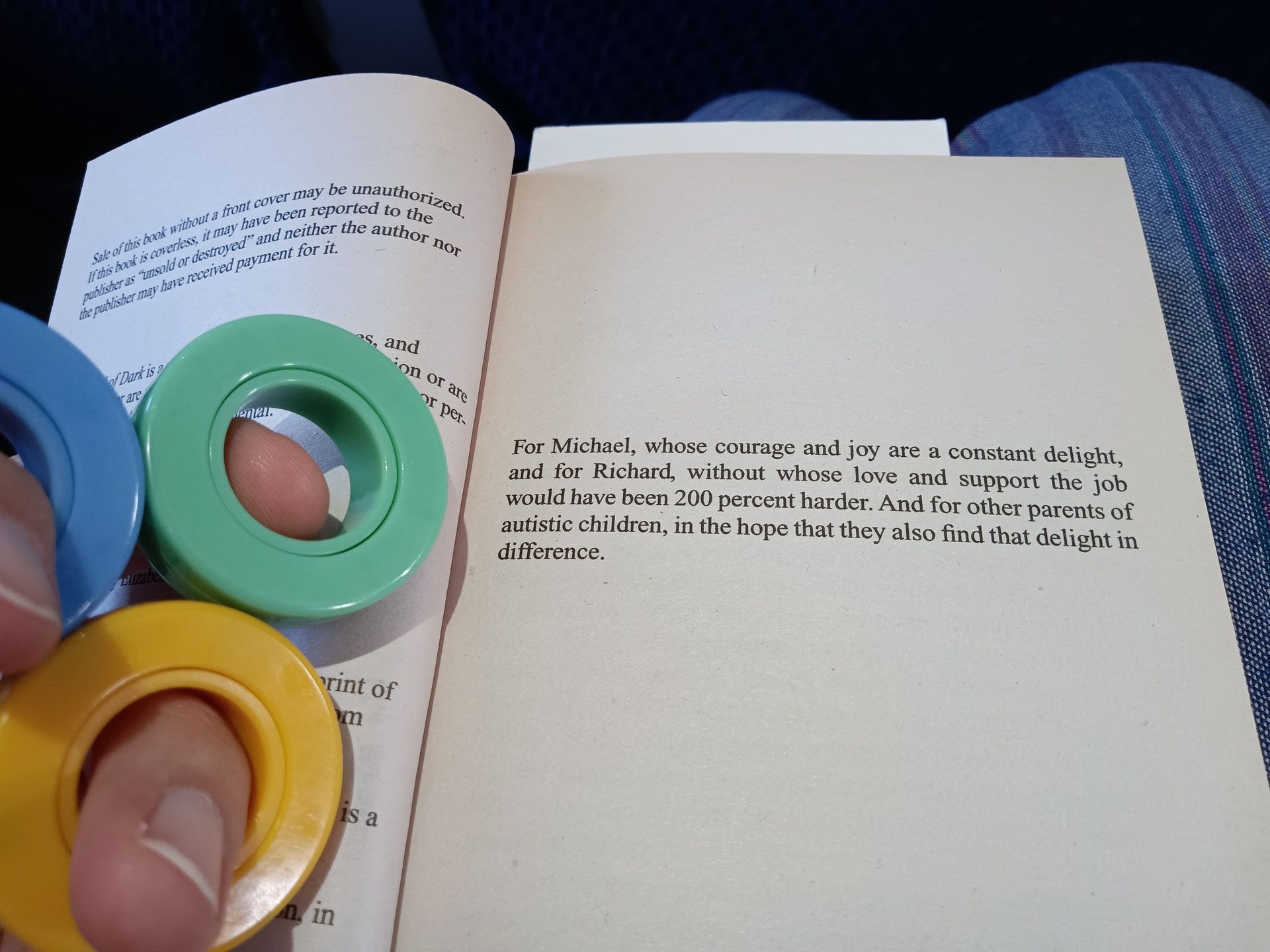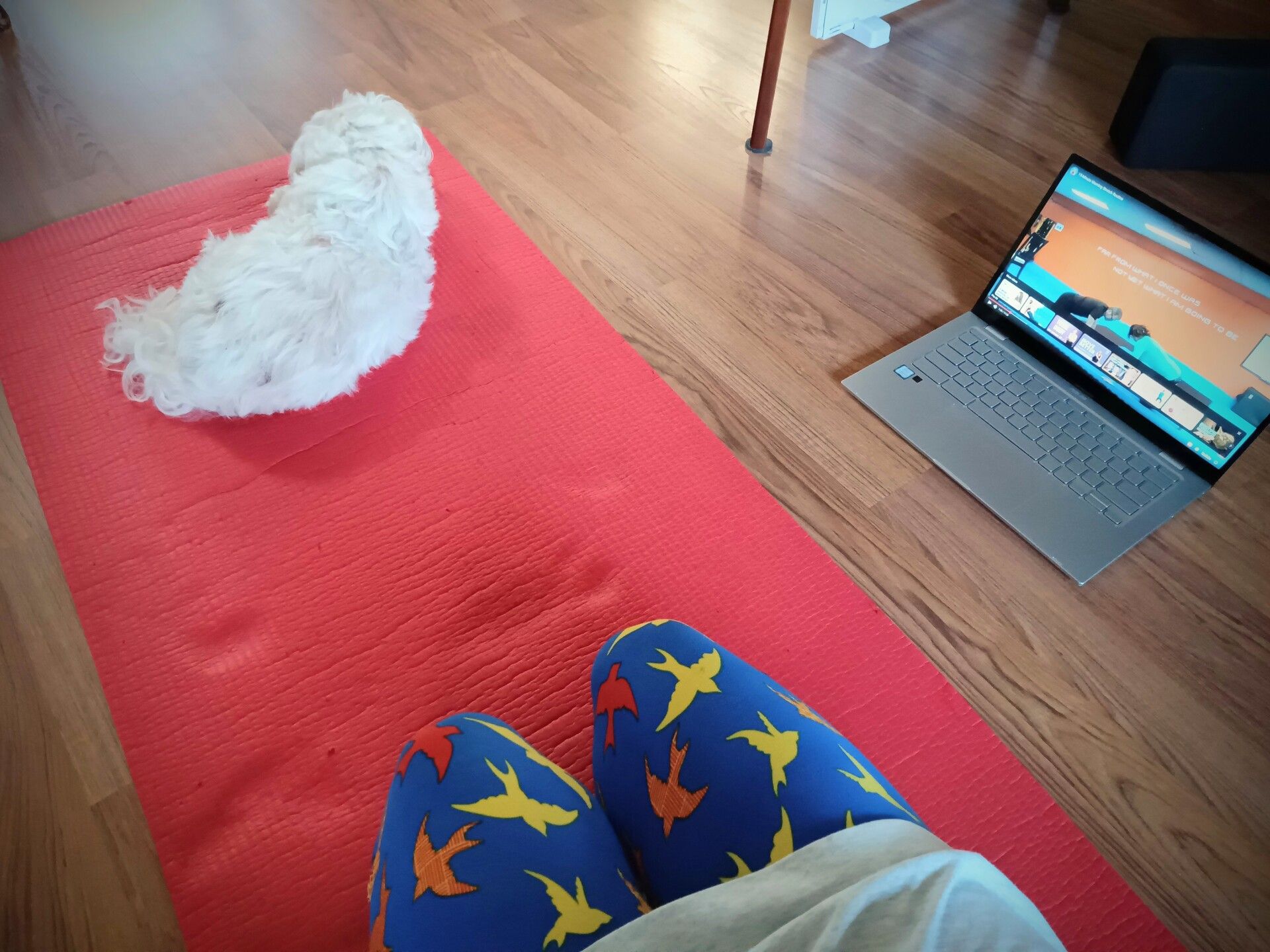- Beany Brain
- Posts
- Beany Brain #61: The Speed of Dark
Beany Brain #61: The Speed of Dark

Beany Brain: loving our jumping-bean brains!
Welcome to this issue of the Beany Brain! I hope today’s newsletter will bounce us up as we contemplate the upsides and challenges of being neurodivergent, a little beauty, some creativity, and just general yeehawesomeness.
Table of Contents

Photo by Abigail Munday
The Speed of Dark
I started The Speed of Dark on a long-haul flight and I wonder if the plane or the title was faster.
It’s a near-future slightly-dystopian novel with the first-person perspective of an autistic man, Lou Arrendale.
First of all, the book was written by the mother of an autistic son, Michael, and is based on his life.
Second of all, we don’t know if Elizabeth Moon, the author, is autistic or not. She’s a computer specialist, a Marine veteran, a fencer, a sci-fi writer, a paramedic, and a local politician. (Wow.)
We know that women have been underdiagnosed for a long time.
We also know that autism is genetic, so you do the math.
I’m not saying that she is or she isn’t.
As an autistic woman myself reading the (fictional) thoughts of an autistic man, I could relate to a lot of his thought processes.
The wondering if he said or did the right thing in the presence of neurotypicals.
The relief of being around other neurodivergent people and not worrying about their stimming or their style of conversation.
The constant scrutiny from his neurotypical and mean boss.
The fear of being around police and wondering if they would think he’s weird and therefore worthy of extra unwanted attention.
The thinking that everyone around him is nice and is his friend and then finding out otherwise when kind neurotypicals step in and defend him from mean neurotypicals that he didn’t realize were being mean.
I love the author’s interplay of light and dark throughout the novel, and the beauty that Lou found in the interplay between them and the cogitating on the actual speed of darkness. Considering that darkness has value and beauty in itself.
No spoilers here from moi. Let’s just say there were some surprising moments and turns of events.
Some reviewers compared it unfavorably to Flowers for Algernon, and I can see why they could say that, but for me it was different enough to be a valuable read on its own or in tandem with FfA. And Elizabeth Moon is a supremely good thinker and writer, in her own league for depth and breadth of knowledge and philosophizing and description.
Lou’s inner monologue alone was fantastic.
I gave The Speed of Dark 5 stars out of 5 on Goodreads, and I only do that for books I’d read again.
Go forth and find the speed of darkness for yourselves…

Photo by Abigail Munday
Ha Ha Haiku
My aim is to share a funny haiku with you every week in every newsletter, whether it’s one of my own or one I curate for you. HA. Ha. Haiku.


Photo by Abigail Munday at Milwaukee’s harbor (University of Wisconsin School of Freshwater Science)
ND People at Work
To go along with my review of The Speed of Dark novel, which is mostly set in a corporate workplace and a department just for autistic people, I thought I’d share some thoughts about being a neurodivergent person in a work setting.
An article from The Guardian about it by Gaby Hinsliff says:
Workers with ADHD and autism bring impressive skills and dedication to their jobs, but face challenges neurotypical employers may not consider. A few key adjustments can be transformative.
This also requires the ND person to know that they are ND and to disclose this fact, which may or may not be safe sometimes, depending on the climate of the workplace (and the country, to be honest).
When I was in full-time paid employment, which has included teaching middle school, high school, TESOL (teaching English to speakers of other languages), and various office work, I didn’t know I was ND, and I had no accommodations as a result.
And I’m not alone in needing accommodations.
One lady in the article used unhealthy coping mechanisms to deal with the anxiety she felt from being undiagnosed and in a workplace:
That meant downing up to nine americanos a day, unwinding with drinks after work – and sometimes bursting into exhausted tears when she got home. Only when she was diagnosed with ADHD at 37, shortly after quitting her job in the media and going freelance, did everything begin to make sense.
Here’s the harsh truth:
But for many neurodivergent workers, the biggest hurdle is getting hired in the first place. A recent [UK] government-commissioned review of autism and employment, led by the former cabinet minister Robert Buckland, found autistic graduates were twice as likely as non-autistic peers not to have found a job after 15 months, with many feeling “they must mask their autistic traits to succeed”.
And this:
In the workplace, this tendency to say the literal truth – rather than telling managers what they want to hear – can sometimes damage promotion prospects even though honesty is potentially very valuable to an employer, [Jo Desborough, a neurodiversity coach who is also autistic] points out.
Some ND folks have amazing gifts that are of course beneficial to their employers, but even so, struggle with anxiety and other comorbidities, workplace rules, unspoken social cues, NT expectations, etc.
Jo Desborough, the ND coach, says that if you can’t disclose your diagnosis/diagnoses for whatever reason, ask for the accommodations anyway (for example, wearing headphones or working partially from home).
Speaking of headphones, in my first works-study job on campus at college in the school cafeteria, I remember being totally overwhelmed by the noises, the voices, the numbers of people milling around, the echoes in the big uncarpeted cavernous room. So one day I took matters into my own hands and wore headphones and clipped my Walkman on my apron as I refilled the salad buffet bar. I don’t remember what music it was that I played, but…
Nope.
I was almost immediately reprimanded by the cafeteria manager and told in no uncertain terms that my Walkman was not allowed.
Now, if I’d been diagnosed then maybe I could’ve explained to him that I needed it.
But it was the early 90s and who knows, maybe it still wouldn’t have been allowed or even understood.
The next semester I transferred to the admissions office mailroom.
Later, as a teacher, I couldn’t just send myself to a different quieter department.
Or the nurse’s office.
I couldn’t wear headphones and a Walkman.
After a number of years, I did switch to freelance work.
(I have to add a caveat here: The school system I left had systemic problems, and the final straw was when I was punched by a student. The violence did not have anything to do with my neurodivergencies. But even without it, a large loud classroom was not the best fit.)
And I felt I could breathe again.
It does all make sense.
Now make it make cents.

Photo by Abigail Munday
Yeehawesome!
Yeehawesome! is a happy-brain roundup in each issue of Beany Brain. What’s happening that’s good in brain land? What’s bringing me joy?
Little Free Libraries in Wisconsin. This one is in front of the local neighborhood police station, and I’m sorry to say that it was about 80% full of smut. But I found one good book anyway. I know of at least two more LFLs in the area so stay tuned…
Art vending machines in Chicago displaying and selling works by local arteests.
Quote of the Week
Sometimes I wonder how normal normal people are, and I wonder that most in the grocery store. (page 72, The Speed of Dark by Elizabeth Moon)
Beany Brownie Points and Extra Bonus Funniness

Wonderful Wednesday
Wonderful Wednesday was a day once a year in college when they would suddenly and surprisingly call off all classes and we’d play all day. The cafeteria provided special fun food and we’d do stuff outside like slip ‘n slides and jello wrestling in sumo suits. This segment of Beany Brain is dedicated to that memory of silliness and fun—no words, just a photo from the week that I’ve taken or found that reminds me to let the joy in. Since Beany Brain is published on Wednesday every week (at least, Wednesday in Japan), I hope you enjoy this Wonderful Wednesday.

Photo by Abigail Munday
Today’s Beany-full Summary:
I’d encourage you to read the novel The Speed of Dark, which is full of the inner monologue and thought processes of an autistic man, Lou Arrendale, in a near-future setting.
ND people in the workplace face multiple simultaneous challenges that NT folks may not.
Go forth in Beany joy. What will help you feel yeehawesome this week?
Thank you for reading this installment of Beany Brain! You’re very welcome to hop on by any old time.
If you’re enjoying Beany Brain, please share with a friend or seventeen at www.beanybrain.com. Cheers big time!